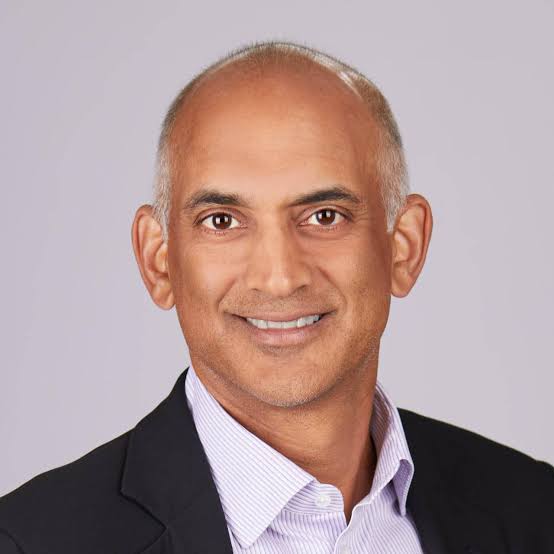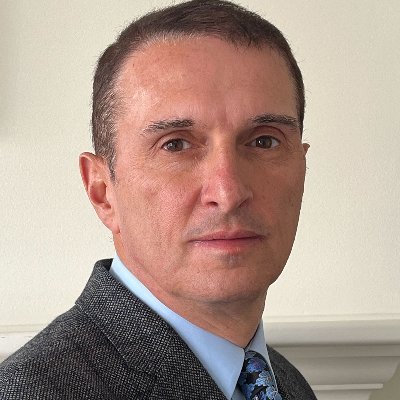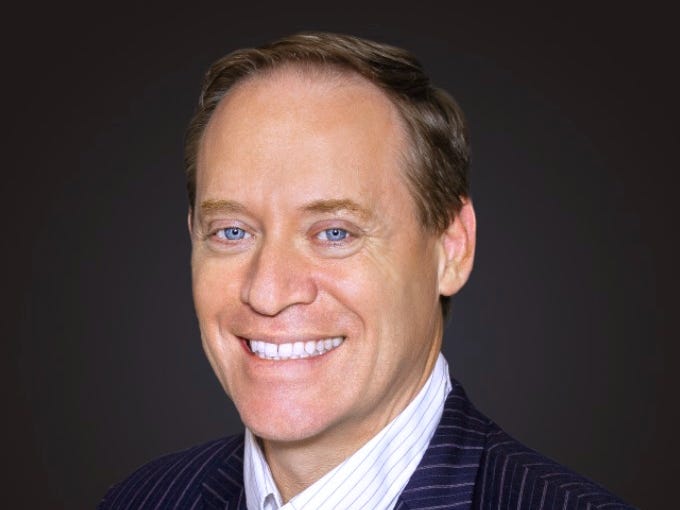Transcripts

Erik: Joining me now is Arjun Murti, many of you know Arjun's name as a former Goldman Sachs partner. He's now a partner at Veriten. And very much a energy markets expert. Arjun is kind of famous for having made the famous super spike call when oil was at 50 bucks. And he said it was going to $105. And sure enough, that's what happened. Arjun, let's talk big picture, oil market, energy transition. A lot of people have convinced themselves that, you know, it's all over for the oil market, because nobody's gonna need it anymore. I don't see it that way. How do you see it?
Arjun: Erik, I actually have a very similar perspective in the sense that, there's this idea that people know for sure that oil demand is going to peak at some point in the next 5,10, maybe 15 years. I don't think there's a decade, let alone year where anyone can at this point know, when oil demand is going to peak. And I spend a lot of time talking about there's the lucky 1 billion of us, those that live in the US, Western Europe, Canada, Japan, Australia, New Zealand, we consume about 13 barrels per capita. The other 7 billion people on earth use just three barrels of oil per capita and all of them aspire to the types of living standards we have. And I think, is all of that going to be oil use? No. But the idea that we know today, what are going to be the displacement technologies, I push back hard on that. I think there's a pretty strong outlook for oil demand. Again, looking out for the frankly, for the foreseeable future.

Erik: Joining me now is Eurodollar University founder Jeff Snider. Jeff prepared a slide deck to accompany this week's interview. For any new listeners who haven't heard Jeff's interviews before, Jeff is famous for really detailed and complete slide decks, this week is no exception with 77 slides in the deck. We're not going to get to all of them, unfortunately, due to time, but I encourage all of you to peruse the entire deck, Jeff is famous for the quality of his charts and graphs. Jeff, it's been way too long. I think the thing on everybody's mind is, I think there's a framework of macro, everybody understood where the most important thing to watch was rate cut expectations, because if we had rate cut expectations coming out of the system, that had to mean down for risk assets. But all of a sudden, Fed Commissioner Waller said some funny stuff about what sounded almost like a reverse Operation Twist and everybody's got a different mindset. And despite the fact that rate cut expectations are coming off the table, this week, we still got the melt up in everything, particularly gold and Bitcoin. So, what's going on? What did Waller really say? Is Zero Hedge, right? That this is reverse Operation Twist? And if it is, what does that mean?
Jeff: Oh, boy, I mean, while I really opened a can of worms here didn't I. As I was putting together the slide deck, I thought, boy, I'd have to redo all those slides just to go over those because you knew it would be a topic of conversation. As you said, Erik, it's definitely something that people are wondering about, because it doesn't sound like it's anything the Fed has done before. So it's quite natural people would say what is really happened? What the hell did the guy even say? And all he really said was they need to rejigger the portfolio maturity, the Fed’s portfolio maturity, to make it more like it was pre-crisis. That's the first part. Essentially, you go back to before 2008, the Fed SOMA holdings were about a third treasuries and was Fed’s, specifically treasuries, because they didn't have any other assets. And over time, through the various programs, they've had to extend the maturity in the portfolio, repeated QE, in essence, to try to fool the marketplace into believing that there's actual huge amounts of stimulus going on. And then you go to 2019, we had all that funky stuff in the repo market. And the Fed not wanting to engage in the QE, call it not QE, what it really was, but in order to make it not QE, they ended up buying Treasury bills, that proved to be a bit of a disaster, because demand for Treasury bills was so high. And so you get to March of 2020, and the Fed realized that was a mistake. So they stopped buying bills. And so, the build proportion in the summer portfolio has really dwindled, forcing the Fed to buy lots of longer duration assets. And what Waller was saying is like, I would like to get back to more of a traditional style, or at least a pre-crisis allocation to shorter term duration. Then he mentioned some other things like what that would do in a future QE episode, it would allow the Fed to roll off treasury bills as they expire, and then use the proceeds to buy longer dated debt, which would then allow the Fed to do QE as it sees it, but not actually expand their balance sheet. So there's a whole bunch of factors there where people were like, what the hell is this? Is this QT? Is this tightening? Is this an Operation Twist like 2011 And 2012? What is really happening here?

Erik: Joining me now is Bianco Research founder Jim Bianco. Jim, great to have you back on the show. I'm really anxious to talk to you about a tweet thread that you posted a couple of weeks ago, that really caught my attention, because so many people have convinced themselves, look, the fix is in, the Fed has already told us they're going to have a rate cutting cycle this year, it's an election year, you know that the markets are totally going to be supported by Fed policy, because inflation is under control. And besides that, whole debate about inflation is behind us. Now everybody knows it's going back to 2%. You don't think so? Tell us, why not?
Jim: Yeah. I think that what we need to understand about what's happening is, this is an old stuff for people that have heard me before, 2020 was a big deal. It really changed a lot of attitudes. And coming out of those attitudes, coming out of that lock down restarted the economy, you know, the economies of different beasts right now. It is not the 2019 economy. I would argue that what we saw in the last three years was, we had two things happen at the same time. We did have an element of transitory inflation, which came about because of the supply chain restart, locked down first and then restart, got us to 9%. That dissipated, we kind of worked our way down into the low threes. I'm talking year over year CPI, just to keep one measure. And Wall Street then invented a term called The Last Mile, around the middle of last year, to talk about the move from 3% to 2% on inflation, and the Fed could then start cutting. One of the things I've been arguing is, first of all, Wall Street's very good at nowcasting. And for those who are not familiar with the term, nowcasting means forecasting something that just happened and say it's about to happen. Where a forecast is to predict something that hasn't happened, that will happen. And nowcast is, we got to 3% inflation in June of 2023, year over year CPI. That's the low, the low in the cycle was seven months ago. I think we're going to hold that low through the February number, possibly through the March number and maybe even until the fall. And yeah, I understand we’re at 3.1 and this whole Last Mile argument. So we go from 3% to 2%. No, we invented the term right as we hit the low. Now why do I think we hit the low? I think there's three big things. One, is, let's call it the base effect. If you look at the numbers from a year ago, you've got a four tenths that you had in February of ‘23. And you've had a big run up of gasoline prices in February of ‘24. So things like the Cleveland Fed and others that forecast CPI are saying that we should have another four tenths number. Okay, that means we'll have another 3.1. Well, then after that, you look at March, April, May, June, July, there's a lot of 0.1s and a lot of 0.2s from a year ago. So we're going to be dropping some very, very low numbers. And even if we print 0.1s and 0.2s, we're still stuck at 3. If we put 0.2s and 0.3s, we start drifting higher. Gasoline prices are definitely working against us, the base effect is working against us.
Then the other big one that I've been pushing back against is, everybody looks at Owners’ Equivalent Rent. And they say that's about a third of, our shelter is about a third of CPI. And that's got to fall because all the real time measures like apartments.com, Zillow, you know, maybe even Case-Shiller. They've all been coming down on a year over year basis, so that those numbers will come down, because they've been printing four tenths, five tenths, six tenths every month. And that will help reduce inflation. I've said we've got the metric wrong, we should be looking at cumulative gains, not year over year gains. If you look at cumulative gains, the big gains that you've seen in rents and in home prices from two years ago, haven't filtered through into the CPI numbers. So, while CPI is saying that housing inflation is up 18% to 20%. The real time measures are saying it's more like 30%. So you've probably going to see stickier housing inflation, not necessarily rising but stickier, which means you're going to print more, five tenths or four tenths. And that will keep the inflation rate up. So what I'm arguing here is that the inflation rate at 3.1 still isn't taken out. It's June of 2023 low, doesn't do it in February, the runways got some very, very low numbers, that we could definitely see us holding 3%. Now what changes that equation? I like to say, call me if crude oil prices collapse. Call me if the economy takes a serious downturn. Then we could say, okay, now maybe we could see some lower inflation numbers. But if the economy starts looking, and crude oil starts looking the same as it has the last three, four or five months into the next three, four or five months, then I think that these inflation numbers are going to be very uncomfortable for the Federal Reserve Chairman to be talking about additional or any rate cut at this point.

Erik: Joining me now is Mike Green, chief investment strategist and portfolio manager for Simplify Asset Management. Mike, it's great to get you back on the show. It's been too long. I want to start with this whole question of inflation and monetary policy. Jim Bianco really got my attention with a tweet thread he had up last week where he said, hey, I think maybe inflation has already bottomed and is about to start increasing. And, of course, the consequence of that could be, or at least I think the consequence of that is, just about everybody in the market is, in my opinion, very complacent and feeling that it's a certainty. We just know now that there's going to be rate cuts, the Fed said there was going to be rate cuts, there have to be rate cuts, especially in an election year, the whole, you know, 2024 is going to be punctuated by rate cuts. What if the data told the Fed to go the other direction, and we had rate hikes between now and the election? Feels to me like nobody's positioned for that. Is that a risk? And should we be thinking about that?
Mike: Well, I think it's always a risk. But I think it's important for people to recognize that, that actually is a priced risk, right? So, if I look at the options surface, in the SOFR futures, which would be the way the mechanism that you would typically use for trading those types of expectations, there's about a 15% chance priced in currently, that the Fed will actually hike rates at some point this year. Now, that's heavily skewed. Let's be really clear about that. That's heavily skewed towards rate cuts. But the cone of possibility is there for rate hikes. And I'm not really sure that I agree with Jim that it is, as ignored a prospect as he is indicating, I think there's a general consensus that inflation has retreated. And it is likely to head towards the 2% goal that the Fed has articulated. I think there's an awful lot of conviction that there are multiple waves of inflation that will carry through, and that that's going to be a much more challenging path. But a lot of the discussion is around, is the right answer 3%, not so much as the right answer 9%. So I think 9% would clearly surprise people, I think that's, you know, return to the high levels that we saw, or in a repeat of the 1970s, even higher levels. I think that would be a catastrophe for markets in terms of expectations. I just don't share Jim's conviction that that's what's actually happening. I think he's misreading the data.

Erik: Joining me now is Tian Yang, CEO and Head of Research for Variant Perception. Tian prepared a slide deck, which everybody is going to want to download, Variant Perception is very well known for their excellent graphs and charts. Registered users will find the download link in your Research Roundup email. If you don't have a Research Roundup email, it means you're not yet registered at macrovoices.com. Just go to our homepage macrovoices.com, click the red button above Tian's picture that says, looking for the downloads. Tian, I gotta compliment you, the last time that we had you on the show, you mentioned one of the leading indicators which your firm is particularly well known for, called LPPL. And I'm going to have you explain what that means in just a second. At that time, you said the LPPL indicator was flashing a basically a top or at least a short term top on the gold market. You called it, to the day, and we saw the market trade off substantially from there. Tell us a little bit more, just so we can understand this, how that indicator works. And is that same indicator flashing any signals on, I don't know if it's gold or any other markets right now.
Tian: Yeah, well, first of all, thanks for having me back. Always glad to be on MacroVoices. Regarding LPPL, it stands for Log-Periodic Power Law. And to us, it's a better model to figure out the end of a trend, compared to kind of more standard things people might use, such as looking at RSI, or looking at deviation from moving averages. Essentially, the marginal edge you get with LPPL is that it captures the underlying wave of the market and not just kind of the parabolic price move. So in a way, you’re not just getting a parabolic price move but with this kind of extra condition to understand that the market is behaving in a disorderly pattern, where essentially, the price action speeds up as it exhausts. So to us, this is a kind of typical trading pattern you see towards the end of a lot of fairly major trends. And typically, the risk-reward for a fade is usually quite good. Now, we didn't obviously come up with an idea all by ourselves, Didier Sornette is kind of considered the, I guess, the godfather of LPPL and popularizing it. I think we've just tried to make it a lot more practical and actionable, you know, get the models running in daily intraday basis. So, obviously, people that are interested to find out more, a quick Google will work but in terms of life today, I think, well, even just literally before we got on, we got an LPPL crash climax on palladium. So it feels like maybe this is it's finally time. I mean, it's been a pretty mega, that downtrend, many false storms. It's also kind of interesting because the linkages to kind of South Africa, and South African equities have also been extremely bottomed out, years of kind of foreigners withdrawing money. So I think palladium is potentially a very interesting one for a tactical bounce. The other one, which is probably not going to be that surprising to listeners, is China has had multiple LPPL crash climaxes in, essentially, the last few weeks on various China linked equities. So on that, the one thing I will say is that, obviously with a lot of the structural problems in China, you know, I think most investors are probably wised up to the fact that a lot of these things are sort of features and not bugs, of investing Chinese assets. But nevertheless, there's going to be very interesting kind of trade structures you can put around it in a one by two core spreads and things like Han Shan you know, there's a lot of these kind of very cute trade structures where you can cap your downside, and get the exposure, you know, if we get a squeeze, so, you know, those are kind of a couple of kind of live trading signals as generating right now.
MACRO VOICES is presented for informational and entertainment purposes only. The information presented in MACRO VOICES should NOT be construed as investment advice. Always consult a licensed investment professional before making important investment decisions. The opinions expressed on MACRO VOICES are those of the participants. MACRO VOICES, its producers, and hosts Erik Townsend and Patrick Ceresna shall NOT be liable for losses resulting from investment decisions based on information or viewpoints presented on MACRO VOICES.
